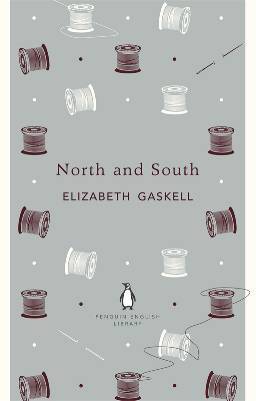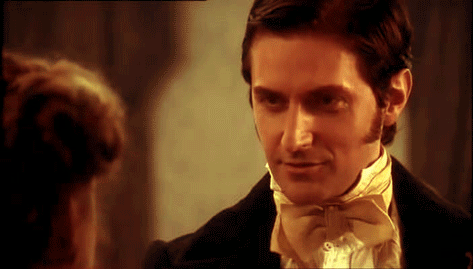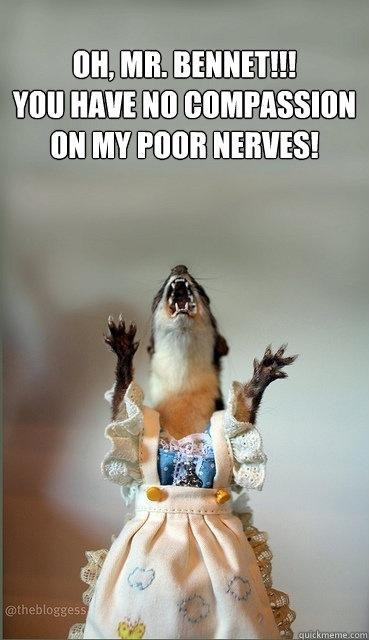
North and South by Elizabeth Gaskell
Series: None
Published: 1885
Publisher: Public Domain
Pages: 544

Take a moment to read that description. Note Margaret's character. She is so peculiarly unique that I can see some people not liking her. But this story is so incredibly epic that I can't help but fall in love with each and every character.Elizabeth Gaskell's compassionate, richly dramatic novel features on of the most original and fully-rounded female characters in Victorian fiction, Margaret Hale. It shows how, forced to move from the country to an industrial northern town, she develops a passionate sense of social justice, and a turbulent relationship with the mill-owner John Thornton.
North and South depicts a young woman discovering herself, in a nuanced portrayal of what divides people, and what brings them together.
So, a little background. I came to the book through the TV miniseries first. I then read the book in two days. Some day I'll go back and take my time with it, but I was so captivated that there was no way I was putting it down.
North and South is a social commentary. It was actually reviewed and edited by Dickens, and friend of Gaskell, who then published it in his magazine. Gaskell was very popular in her time. She did a fantastic job of displaying life of the time from all classes. The book starts off in the South, and there's a very scenic, realistic country life painted before us - more than simply the image, but also the characters and their life. When we move North, suddenly the conflicts are different, the arguments are varied, and justice is an ever prevailing question. Margaret struggles to come to terms with all of this, and most prominently, entrepreneur John Thornton.
(insert the 30 minutes I wasted took to look through Richard Armitage pictures)
So, before people start thinking it, no, this is not a Pride and Prejudice love story. Thornton is not at Mr. Darcy's level in society. It's actually rather hard to discern his level because he's self-made. And Margaret, while only from a simple country family, was raised in London society. They are both equal because they are unequal. But realization is a process.
I common trait of Gaskell's novels is well rounded characters. Sometimes I think people to take that to mean characters that are likable, but that's not it at all. There are plenty of flat characters I love (Mrs. Bennet, I'm looking at you),
and there are round characters I dislike. However, the difference between the two is this: if I dislike a round character, I am more likely to forgive them. If I dislike a flat character, NO SYMPATHY.
Round characters aren't black and white. They are a rainbow.
I approve of rainbows.
The writing in this is extremely well done. Very poetic, very moving, and very humorous all at once. My favorite line is,
Time and space were not, though all other things seemed real. Every event was measured by the emotions of the mind, not by its actual existence, for existence it had none.
That gets me every time.
Yet, if all of this is true, then why don't more people know about her? Austen was similarly a very well written author that has survived the test of time - why not Gaskell? Well I can't say for sure, here's my theory.
The conflicts of Austen's time were more internal than external. The social class system was ridiculous, but in Austen's books, this is always presented as an obstacle to maneuver, and never as a point of conflict in society itself (hence the satirical/critical nature of the books). Whether the system of social climbing was a wrong one was never much up for argument between the people of that time. Mansfield Park and Sense and Sensibility come close to this, but the topic never leaves people of intimate acquaintance. That is to say, Elinor never confronts her brother about his turning them out of the house with hardly a penny - it is seen as his right (if a bit unfair), and so improper to dispute.
Whereas in the time of Gaskell's novels, and in North & South, while the characters still have plenty of internal conflicts to come to terms with, there is also the matter that the world of politics gives everyone the right to question the way things are done. A character is no longer judged by just [him][her]self and those of his/her society, but by the world, and furthermore, the world has the right to question them about their actions. To me, it makes a much more interesting tale, but it also brings in a heavier economics side, as heartfelt talked about, that might be unwelcome to many. It's a complication that some would rather do without. Honestly, I was surprised by the amount of economic principle touched upon in this book, but so happy to see it! It's a fascinating subject, albeit, not to everyone.
In conclusion, I now have two other Gaskell books on my desk that need to be read soon because this book was perfection.







No comments:
Post a Comment